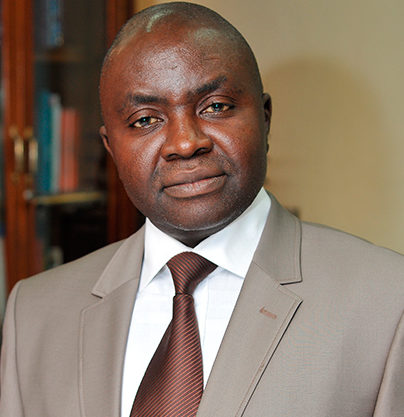
The Director-General, Lagos Chamber of Commerce and Industry (LCCI), Muda Yusuf, has urged the Federal Government to show full commitment to the implementation of the African Continental Free Trade Area (AfCFTA) agreement, scheduled to take off July 1, 2020 by speeding up recommendations of the Impact and Readiness Assessment Committee.
The committee, which was inaugurated by President Muhammadu Buhari, in October 2018, with the mandate to assess the extent to which Nigeria was ready to join the agreement, and what the impact of doing so would be, had since 27th June 2019 submitted its report.
Speaking with SHIPS & PORTS, Yusuf expressed concern over Nigeria’s readiness for implementation of AfCFTA, as according to him, 90 percent of the recommendations made by the committee are yet to be implemented.
He said, “We need to do a lot more to get ourselves prepared. The government has set up an Impact and Readiness Assessment Committee to determine what needs to be done for us to key into the AfCFTA. This committee has submitted its report with a long list of things that the government needs to do more for us to effectively be part of AfCFTA. Regrettably, 90 percent of what is stated there has not happened. So in terms of our readiness, I still have concern particularly about the real sector.
“I am not saying we should not go ahead with AfCFTA, we have already signed it but government needs to commit to the recommendations of the Impact Assessment and Readiness Committee. They have inaugurated the action committee to ensure the implementation of that but nothing is happening. Most of the recommendations cannot be achieved within a short term but then, there must be something on the table to show that we are committed to the implementation.”
Yusuf said the only way Nigeria could maximise the benefits of AfCFTA is to increase the total value and volume of non-oil exports by scaling up productivity in the real sector of the economy.
“If you look at the structure of our export, it is about 95 percent oil and gas, the remaining five percent is for agric and manufacturing, most of which goes to the neighbouring countries. So, if we are going to trade internationally, it is not just about import, it is also about export. So what exactly are we going to put on the table if the only thing you have is oil and gas? How will that benefit the economy? We need to scale up very rapidly, issues of productivity in the real sector of the economy. If we don’t strengthen that, we will not be able get the right kind of value that we need to get,” he said.
Speaking on the adoption of a single currency by the Economic Community of West African States (ECOWAS), which now replaces the CFA, and expected to take off this year, Yusuf said, “Under the ECOWAS integration agenda, the target date for adoption of a common currency was year 2000 but 19 years after, we are still not anywhere near having a common currency. So the pace of economic integration has been very slow. Even as we speak, we are still grappling with the preliminary element of economic integration – the free trade area and the Customs union.
“The francophone countries are moving faster and that is why they have moved from the CFA now to Eco and Ghana, perhaps, has indicated that they will join them. So we need to also puts our acts together and see how we can get on board if we truly believe in the whole idea of this economic integration.”